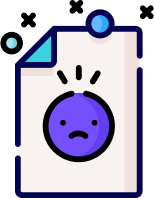What you will learn
-
None
Globalisation, changing demographics and technological advancements are some of the key driving forces of the future. Our students will have to be prepared to face these challenges and seize the opportunities brought about by these forces. In Twenty-first Century Learning, students use educational technologies to apply knowledge to new situations, analyze information, collaborate, solve problems, and make decisions. Twenty-first century education structured should be outcome based which developed certain critical core competencies such as collaboration, digital literacy, critical thinking, and problem-solving, self learning. The curriculum should incorporates higher order thinking skills, multiple intelligences, technology and multimedia, communication skill and self learning methodology along with authenticated scientific assessments and evaluation. Curriculum should provide direction so that student can learn by themselves and work both independently and interdependently. The curriculum and instruction are designed to challenge all students, and provides for differentiation. So the curriculum is not a syllabus or textbook-driven or fragmented, it should be set of Specific, Measurable, Appropriate, Challenging but Achievable educational objective or Skills (outcome) which students will be acquire at the end. Evaluation of student achievement can be made more valid and reliable as the benchmark of achievements is explicitly stated.







No Discussion Found
0.0
0 Reviews
Meet Your Instructor
About Instructor
VTU is one of the largest Technological Universities in India with 24 years of Tradition of excellence in Engineering & Technical Education, Research and Innovations. It came into existence in the year 1998 to cater the needs of Indian industries for trained technical manpower with practical experience and sound theoretical knowledge.

Free
-
Course Duration10 h 8 m 1 s
-
Course LevelIntermediate
-
Student Enrolled0
-
LanguageEnglish
This Course Includes
- 10 h 8 m 1 s Video Lectures
- 0 Quizzes
- 0 Assignments
- 0 Downloadable Resources
- Full Lifetime Access
- Certificate of Completion
